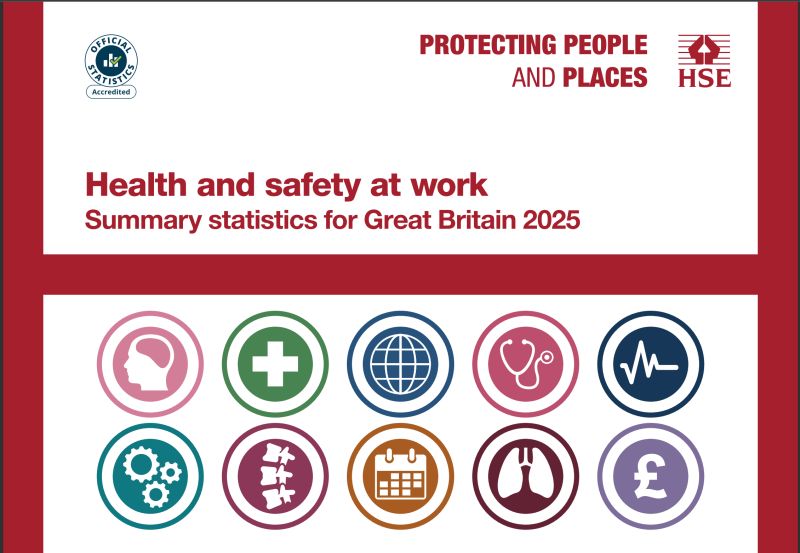On October 30, 2024, the Chancellor of the Exchequer presented the Autumn Budget, with a focus on strengthening the UK economy, supporting businesses, and investing in essential sectors like construction and health and safety. Here are the main highlights, especially relevant to HR, Health & Safety, and the construction industry.
1. National Living Wage Increase
What’s Changing?
Beginning in April 2025, the National Living Wage (NLW) will increase by 6.7%, raising the minimum wage to £12.21 per hour for those aged 21 and over. This increase aims to support low-paid workers in coping with the rising cost of living and move closer to a standardised minimum wage across the UK.
Impact on Businesses
This increase will mean higher wage costs for businesses, especially in sectors like hospitality, retail, and construction, which often employ a significant number of workers on lower wages. Employers will need to revisit their budgets, particularly to account for wage adjustments across large teams, and evaluate the financial implications for hiring plans and operational costs.
2. Changes in National Insurance Contributions (NICs)
What’s Changing?
From April 2025, employer NICs will rise from 13.8% to 15%, and the earnings threshold for NICs will decrease to £5,000 per employee, down from £9,100. To support small businesses, the Employment Allowance will increase from £5,000 to £10,500, allowing many small employers to continue operating without paying NICs.
Impact on Businesses
While the increase in NICs may place additional financial pressure on larger firms, particularly those with extensive workforces, the raised Employment Allowance should help small businesses navigate these changes more smoothly. Companies will need to assess the impact of higher NICs on their financial planning, potentially adjusting budgets to accommodate this increased payroll cost. Large employers may also consider alternative strategies for managing labour costs, such as optimising staff schedules or investing in automation to maintain productivity without excessive headcount growth.
3. Support for Health and Safety in the Workplace
What’s Changing?
The budget includes additional resources allocated to the Office for Product Safety and Standards, with the aim of improving workplace safety standards and enforcing compliance across industries. Additionally, funding has been increased for workplace mental health services, supporting businesses in building healthier, more supportive environments for employees.
Impact on Businesses
This investment underscores the importance of health and safety as essential to a thriving workforce and productive operations. Businesses now have additional incentives to bolster their safety and mental health initiatives, which could help mitigate issues like employee burnout, reduce absenteeism, and improve overall morale. For companies in high-risk industries like construction, this funding can support proactive safety measures, reinforce a positive safety culture, and maintain compliance with evolving standards.
4. Investment in Construction and Infrastructure
What’s Changing?
The government has pledged over £100 billion in public investment over the next five years, aimed at enhancing the UK’s infrastructure through projects in transportation, affordable housing, and renewable energy. This funding is designed to stimulate job creation, economic growth, and long-term sustainability by prioritising infrastructure and energy resilience.
Impact on Businesses
This substantial investment is a positive development for the construction industry, increasing demand for contractors and skilled tradespeople. However, this surge in demand could place additional pressures on resources, potentially impacting project timelines and stretching workforce capabilities. Companies involved in construction or infrastructure projects should consider strategies to maintain high safety and quality standards amidst this expected increase in workload, including prioritising training for new hires to meet rising project demands.
5. Business Rates Relief for Retail, Hospitality, and Leisure
What’s Changing?
In a bid to support high street businesses, the government announced permanent reductions to business rates for retail, hospitality, and leisure properties, which will take effect in the 2026–27 financial year. Additionally, a temporary freeze on the small business multiplier is set to provide immediate relief to qualifying businesses.
Impact on Businesses
This rates relief is expected to free up capital for investment in growth, offering financial support to retail, hospitality, and leisure businesses facing ongoing economic pressures. For the construction sector, this relief could potentially translate to increased demand for commercial property developments, renovations, or shop fit-outs as small and medium-sized enterprises benefit from reduced operating costs and seek to reinvest in their spaces.
6. Continued Focus on Carbon Capture and Clean Energy Projects
What’s Changing?
As part of the UK’s net-zero goals, the budget includes substantial funding for renewable energy and Carbon Capture, Usage, and Storage (CCUS) projects. This investment aims to stimulate innovation and promote a transition to sustainable energy sources while reducing carbon emissions across sectors.
Impact on Businesses
For companies involved in clean energy and sustainable construction, these initiatives open opportunities to innovate and collaborate on projects aligned with the UK’s environmental goals. The construction sector, in particular, may see new partnerships and increased demand for sustainable building practices, contributing to job creation in green construction fields. By adopting environmentally-friendly processes, businesses can not only align with government objectives but also meet the growing demand for sustainable practices from consumers and clients.
Potential Impacts on Health & Safety
The provisions within this budget are expected to have both positive and challenging impacts on health and safety practices across various sectors:
Positive Impacts: Increased funding for workplace safety standards and mental health initiatives supports healthier work environments, reducing risks related to physical injuries, burnout, or mental health crises. Enhanced mental health support, backed by financial investment, helps build a culture where well-being is prioritised, and employee needs are recognised.
Challenges Ahead: However, the construction industry may face challenges balancing high demand with rigorous health and safety standards. Increased project loads could strain resources, putting pressure on safety practices if not carefully managed. Organisations will need to develop well-implemented health and safety protocols to maintain safe environments amid this anticipated growth.
In Summary
The Autumn Budget 2024 represents a focused effort by the government to strengthen the economy’s foundation while aiming for sustainable growth and increased support for the workforce. While the budget presents opportunities for growth—particularly for construction and high street businesses—it also introduces new responsibilities in terms of wage compliance and safety standards.
For businesses across the UK, these updates highlight the importance of proactive planning to adapt to regulatory changes. By strategically planning for wage increases, investing in sustainable practices, and reinforcing safety protocols, businesses can stay resilient and continue to thrive in a dynamic economic landscape.
For more updates on industry news, compliance guidance, and training opportunities, keep following our blog.




